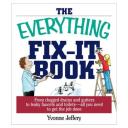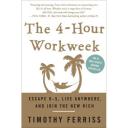More than 10 years ago, I read this book casually. “Think and Grow Rich!” Yes, keep dreaming. Obviously, I didn’t think much of it. The examples were very old and I couldn’t quite relate to them. The new audio-book edition with the editor’s comments really brought them to light for me. Of course, having read lots of the self-improvement books, I came to appreciate how revolutionary this book was during its time of writing – 1937, right after the Depression. Indeed, this is a real classic. The pdf file
can be found here. Here is a nice video of Napoleon Hill on Youtube.
The 13 steps:
1. A burning desire (goal setting): burn your bridge of retreat. The 6 ways: 1) fix in your mind the exact amount of money you desire, 2) determine what you intend to give in return (no free lunch), 3) set a date, 4) create a definite plan and being at once, 5) write them out on paper, 6) read your statement out aloud, twice daily. The poetry, “… For Life is a just employer, He gives you what you ask, But once you have set the wages, Why, you must bear the task. … That any wage I had asked of Life, Life would have willingly paid.” How true!
2. Faith (strong belief without the religious connotation): Develop faith, a state of mind that can be induced, by affirmation or auto-suggestion. The affirmation or auto-suggestion works by speaking into your sub-conscious mind. “Whether the statement be true or false. If a man repeats a lie over and over, he will eventually accept the lie as truth.” Self-fulfilled prophesy works both ways – use it to your advantage. Encourage the positive emotions as dominating forces and eliminate negative emotions. The book went into great details about an idea from Charles M. Schwab, with JP Morgan’s help that bought out Andrew Carnegie’s steel company and turn it into the US Steel Company. The merger nearly created so much wealth – synergy, in today’s term.
3. Auto-suggestion: This was covered slightly in the previous chapter. But it went into more depth. The three steps to stimulate your subconscious mind: 1) Repeat loudly the written statement of the amount of money you intend to accumulate, the time limit, the description of services/merchandise you intend to give in return for the money. 2) Repeat this program night and morning until you can see in your imagination, 3) Place a written copy of statement where you can see it night and morning.
4. Specialized Knowledge: “Knowledge will not attract money, unless it is organized, and intelligently directed, through practical plans of action, to the definite end of accumulation of money.” 5 ways to purchase knowledge a) One’s own experience and education, b) experience and education through cooperation of the “Master Mind Alliance.” c) Colleges and Universities, d) Public libraries, e) Special training courses. I would add “Internet” to f) nowadays. I often envy those Jeopardy winners who possesses so much general knowledge but now I feel sorry for them because probably the game shows are the only outlets for them to succeed in life. Hill emphasized that the main thing is the idea. Specialized knowledge may be found just around the corner – any corner!
5. Imagination: The desire is given shape, form and action through the aid of the imaginative faculty of the mind. Two forms of imagination: Synthetic imagination – combining old concepts ideas, and Creative imagination – original ideas, a faculty through which “hunches” and “inspirations” are received – tune into your “Infinite Intelligence” by communicating with the subconscious minds of others. Hill gave the example of a young preacher Dr. Gunsaulus received his one million dollars after his determination to get it within a week. “Ideas are intangible forces. .. They have the power to live on, after the brain that creates them has turned to dust.”
6. Organized Planning: 1) Faultless plans, 2) Have the advantage of the experience, education, native ability and imagination of other minds – your “Master Mind.” Keep replacing the plan if it does not work. Temporary defeat is a not permanent failure. “No man is ever whipped, until he quites – in his own mind.” The major attributes of Leadership: 1) Unwavering courage, 2) Self-control, 3) A keen sense of justice, 4) Definiteness of decision, 5) Definiteness of plans, 6) The habit of doing more than pair for, 7) A pleasing personality, 8 ) Sympathy and understanding, 9) Mastery of detail, 10) Willingness to assume full responsibility, 11) Cooperation – leadership calls for power and power calls for cooperation. Hill went into a lot of details about getting employment. In marketing your service, he talks about the QQS formula: 1) Quality of Service, 2) Quantity of Service (habit of giving your best), 3) Spirit of Service – habit of harmonious conduct. I like the way Hill characterizes the value of your brain – divide your annual income by the on-going interest rate. For example, if you make $100K per year at 5% interest rate, your brain is worth $2M. Of course, if your brain or ideas have a lasting value, the compounding effect could have an infinite value. How interesting! Hill then talked about 31 major causes of failures – a real downer. He suggests that we take annual inventory of ourselves – the 28 questions to ask ourselves every year. I would probably shrink them down the following 3 questions: 1) Have I given the best of myself in quality/quantity/spirit of my service to my customers/employers? 2) Have I used my time and money and channeled my energy efficiently according to my plans and toward my goals? 3) How and where have I improved myself in terms of my knowledge, my personality, and my work habits?
7. Decision (do not procrastinate): Make your own decisions or tap into your “Master Mind” – “opinions are the cheapest commodities on earth.” “Genuine wisdom is usually conspicuous through modesty and silence.” Hill gave examples of Abraham Lincoln’s decision to issue the Proclamation of Emancipation, and the 56 people’s decision on sign on America’s Declaration of Independence, risking their own lives. “Those who reach decisions promptly and definitely, know what they want, and generally get it.” “Definiteness of decision always requires courage.”
8. Persistence(Will Power): How to cultivate persistence: a) Definiteness of purpose. b) Desire, c) Self-reliance (using self suggestion), d) Definiteness of plans, e) Accurate knowledge – “guessing” destroy persistence, f) Cooperation, g) Will-power – the habit of concentrating one’s thoughts upon building the plans, h) Habit – forced repetition of acts of courage. One must overcome the fear of criticism.
9. Power of the Master Mind: Power may be defined as “organized and intelligently directed knowledge.” The sources of knowledge: a) Infinite knowledge (next chapter), b) Accumulated experience, c)Experiment and Research. “Master Mind” is defined as “Coordination and knowledge and effort, in a spirit of harmony, between two or more people, for the attainment of a definite purpose.” By today’s terms, it would be “a synergistic team with complementary knowledge and experience” like Steve Jobs and Steve Wozniak, Bill Gates and Paul Allen, and Larry Page and Larry Page And Sergey Brin. This is a way to multiply your brain power. On the power of positive emotions, Hill talks about “Money is shy and elusive; it must be wooed/attracted and won… Poverty needs no plan .. it is bold and ruthless.” I don’t think I ever personify wealth that way but I can see why.
10. Sex Transmutation (harness the sexual energy): Hill brought up the correlation of highly developed sexual energy to high achievement. The top 10 stimuli to human mind: 1) sexual expression, 2) Love, 3) Desire for fame, power, or financial gain, 4) Music, 5) Friendship, 6) A Master Mind alliance, 7) Mutual suffering, 8 ) Auto-suggestion, 9) Fear, 10) Narcotics and alcohol. “Genius is developed through the sixth sense.” Where do these “hunches” come from? 1) Infinite intelligence, 2) One’s subconscious mind, 3) The mind of other person, 4) From other other person’s subconscious mind. Hill cited several examples of great people driven by force of sex, Napoleon Bonaparte, Lincoln, Thomas Jefferson, William Shakespeare, and etc. Hill also drew the conclusion that the majority of men do not succeed until age of 40 or 50, due to their tendency to dissipate their energies through over-indulgence in physical sex. “The average man reaches the period of his greatest capacity to create between forty and sixty.” I guess I still have hope. Hill mentioned a lot of stereotypes between the role of man and woman. I think they probably apply mutually these days.
11. Subconscious Mind: According to Hill, the subconscious mind is the connecting link between the finite mind of man and Infinite Intelligence. And emotionalized thoughts have direct influence on the subconscious mind. Thus, the following 7 positive emotions must be injected through auto-suggestion: 1) Desire, 2) Faith, 3) Love, 4) Sex, 5) Enthusiasm, 6) Romance, 7) Hope. They are against the 7 negative emotions: 1) Fear, 2) Jealousy, 3) Hatred, 4) Revenge, 5) Greed, 6) superstition, 7) Anger. Positive and negative emotions cannot occupy the mind the same time. One or the other must dominate. The subconscious mind is the intermediary, which translates one’s prayers into terms which Infinite Intelligence can recognize, presents the message, and brings back the answer in the form of a definite plan or idea for procuring the object of the prayer. I’m not sure Hill really meant “Infinite Intelligence” to be God. But it appears that Hill does believe man can tap on the God-like nature through the subconscious mind.
12. The Brain(a broadcasting and receiving station for thought): The intangibles, our thought, that our brain picks up cannot perceive through any of our 5 senses. All of us are controlled by forces which are unseen and intangibles. Hill goes into the power of telepathy.
13. The Sixth Sense: Hill extracted the sixth sense using meditation through mind development from within. By studying his heroes like Edison, Emerson, Darwin, Lincoln, and etc., Hill could role play each role and have for himself the “invisible counselors” or his “imaginary cabinet.” This is pretty cool. It’s like having internal debates as he takes on various opposing roles.
In the final chapter, Hill talks of the 6 basic fears that might block your success: Fear of 1) poverty, 2) criticism, 3) ill health, 4) loss of love of someone, 5) old age, 6) death. Fears are nothing more than states of mind – subject to control and direction. Hill had the cures for each of fears. He also addressed the 55 famous alibis (excuses). Hill’s parting message: “If we are related, we have, through these pages, we have met.” Indeed.
The last few chapters on Master Mind, Sex transmutation, Sixth Sense, the Brain, the Subconscious Mind, in my view, are the ways Napoleon Hill deployed human’s creativity. These are the unique ways you tap on your own internal creative intelligence. I can see why this book was and has been a classic. Each area can be expanded and elaborated in several books.
I have listened to the audio book twice and read the book once over. I believe I have learned how to tap on these powers to take myself to the next level. After all, according to Hill, my creative life has just begun…






